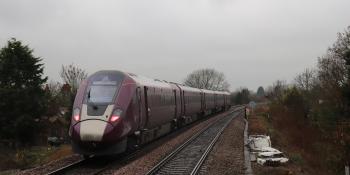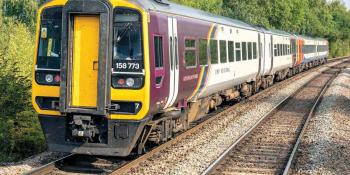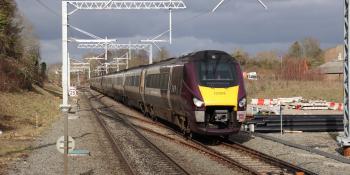
A plan for growth and better performance is needed to improve regional rail services in the East Midlands, according to a new report published by Transport for East Midlands.
The report, ‘Platform for Growth’, highlights that just 16.3% of people in the East Midlands are within a five-minute drive of their nearest station, while around 75% of stations in the region are served by one train per hour or fewer. Almost three-quarters of rail journeys between the largest towns and cities in the East Midlands involve a change of train, while towns such as Coalville, Louth and Swadlincote have no services at all. Usage is accordingly low, with rail being used less than in other regions. The report also highlights the low level of spend per head on transport in the East Midlands, and in 2022-23 East Midlands Railway received less than half of the net subsidy of West Midlands Trains or Southeastern.
The report suggests reducing delays by half could attract 8% more passengers per year. It notes that fewer services are running than were promised in the EMR franchise, which began in 2019, and if the full planned timetable was implemented it is suggested this would generate £3 million of extra revenue and £11 million of direct economic benefits. The report also highlights the sparsity of Sunday services, with places such as Worksop, Spalding and Syston having no Sunday services, and none on the Derby to Crewe line until mid-afternoon.
While welcoming the introduction of EMR’s new Aurora bi-mode trains on the Midland main line and refurbishment plans for the EMR and CrossCountry fleets, the report calls for a strategy to upgrade and grow rolling stock fleets from 2030 onwards. It also calls for investment in network integration, the opening of new stations and routes, and examination of opportunities to cut journey times between major centres.
The report concludes that key decisions on rail priorities and investment in the region are made in London. With Derby to be the home of Great British Railways, it suggests the East Midlands needs a voice in the new structure, building on the rail collaboration agreement between TfEM and the Department for Transport and the establishment of new combined authorities in the East Midlands.





